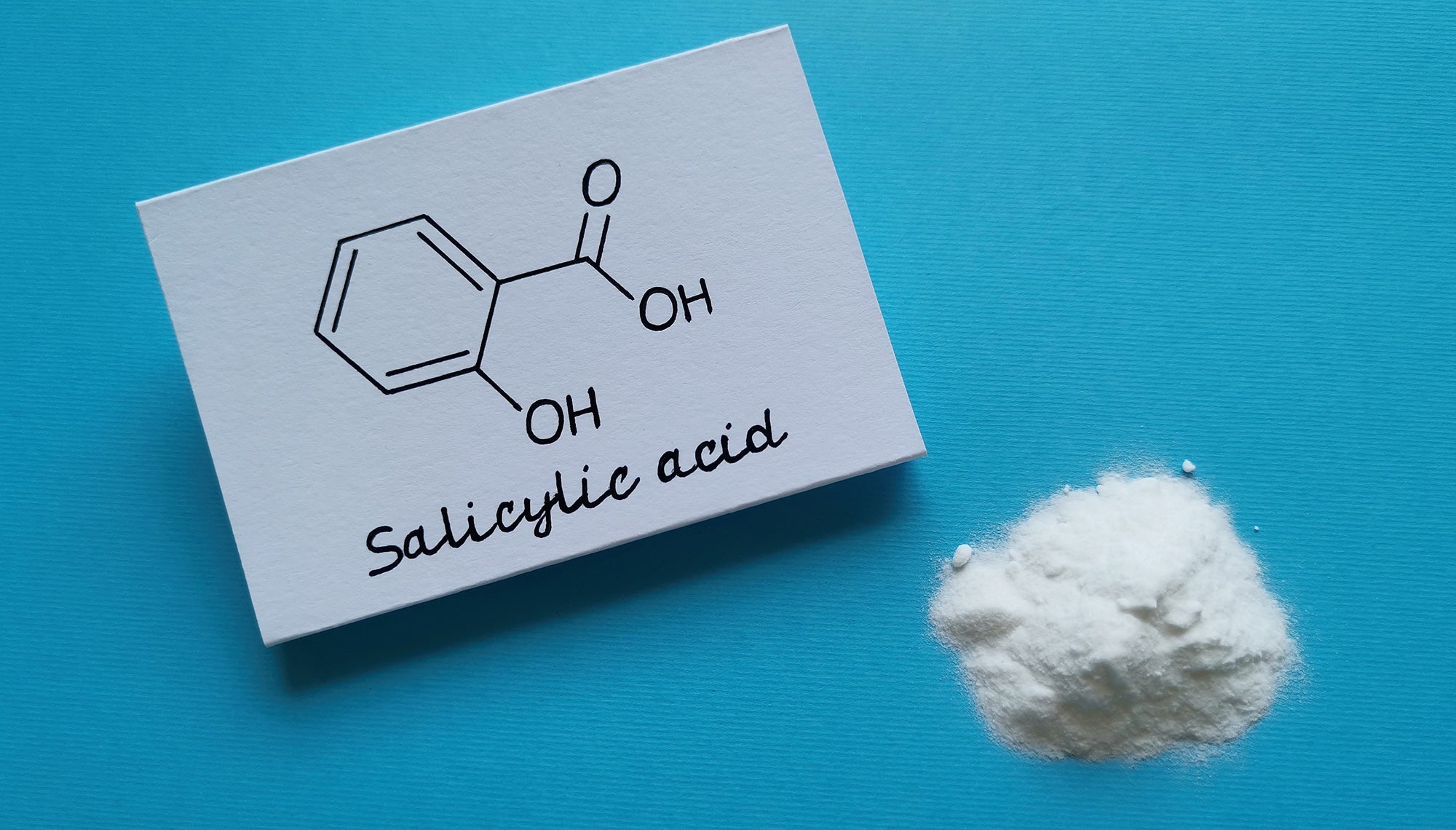Acne is a common skin condition that affects millions of people worldwide and searching for effective acne treatments is a priority for many. One of the most popular ingredients in the battle against acne is salicylic acid. But does this substance truly live up to its reputation? Is salicylic acid good for acne?
In this blog post, we will explore what makes salicylic acid a key player in acne treatment, its benefits, potential side effects and how to incorporate it into your skincare routine. Read on to discover why salicylic acid might be the answer to your acne concerns and how to make the most of it in your daily routine.
What is Salicylic Acid?
Salicylic acid is a type of beta hydroxy acid (BHA), renowned for its ability to penetrate the skin's surface and target acne at its source. Unlike alpha hydroxy acids (AHAs), which are water-soluble, beta hydroxy acids are oil-soluble, allowing them to work more effectively on oily skin. This makes salicylic acid particularly beneficial for those with acne-prone skin, as it can help to reduce excess oil and unclog pores.How Does Salicylic Acid Work?
Salicylic acid works by exfoliating the skin, helping to remove dead skin cells that can accumulate and clog pores. This exfoliation process not only prevents clogged pores but also helps to reduce the formation of acne-causing bacteria. By reducing excess sebum and oil, salicylic acid helps to create a clearer, healthier complexion.

Is salicylic acid good for acne? Yes, salicylic acid is highly effective in treating acne, especially for those with oily or acne-prone skin.
Benefits of Salicylic Acid for Acne
Salicylic acid offers several benefits for those struggling with acne:- Exfoliation: Salicylic acid effectively removes dead skin cells from the skin's surface, preventing them from clogging pores and causing breakouts.
- Oil Control: As a beta hydroxy acid, salicylic acid penetrates deep into the pores to control excess oil production, which is a common trigger for acne.
- Anti-inflammatory Properties: Salicylic acid helps to soothe and reduce inflammation, making it ideal for calming irritated, acne-prone skin.
- Prevention of Future Breakouts: By keeping pores clear and reducing oil, salicylic acid can help prevent future breakouts, making it a valuable tool in long-term acne treatment.
Potential Side Effects and Considerations
While salicylic acid is effective, it is essential to use it correctly to avoid potential side effects. Using too much salicylic acid can lead to skin irritation, dryness and peeling. It's important to pay attention to how your skin reacts and adjust usage accordingly. For those with sensitive skin, it might be best to start with a lower concentration or to use salicylic acid products less frequently.
How to Incorporate Salicylic Acid into Your Skincare Routine
Incorporating salicylic acid into your skincare routine can be a game-changer for acne-prone skin. Several Allmedic products, such as the Acne Clear Cleanser, Acne Clear Scrub and Acne Clear Night Exfoliating Lotion, contain salicylic acid, making them highly effective in treating and preventing breakouts. Here's how to do it:- Frequency: Use salicylic acid daily if your skin can tolerate it, but start slowly if you're new to this ingredient.
- Application Tips: Apply salicylic acid after cleansing and before moisturising to allow it to penetrate the skin effectively.
Allmedic Skincare Routine for Acne-Prone Skin
To maximise the benefits of salicylic acid, it's essential to use a skincare routine that complements its effects. Allmedic offers several products that contain salicylic acid, which can help you manage acne more effectively:- Step 1: Cleanse - Start with the Allmedic Acne Clear Cleanser, which contains salicylic acid to deeply cleanse your skin and remove excess oil, preparing it for treatment.
- Step 2: Exfoliate - Use the Allmedic Active Exfoliating Scrub to gently exfoliate your skin, removing dead skin cells and preventing clogged pores.
- Step 3: Treat - Apply the Allmedic Acne Clear Night Exfoliating Lotion, which includes salicylic acid, at night to treat acne and help prevent new breakouts from forming.
- Step 4: Detoxify (Optional) - For an added boost, incorporate the Allmedic Detoxifying Skin Lotion into your routine to purify and soothe your skin.
Conclusion
Salicylic acid is a powerful tool in the fight against acne, especially for those with oily, acne-prone skin. By effectively removing dead skin cells, controlling oil production and preventing clogged pores, salicylic acid can help to create clearer, healthier skin. Allmedic’s range of products containing salicylic acid can be an excellent addition to your skincare routine, helping you manage and treat acne effectively.FAQs
What is the difference between salicylic acid and alpha hydroxy acid (AHA)?
Salicylic acid is a beta hydroxy acid (BHA) that penetrates the pores and is particularly effective for oily, acne-prone skin. In contrast, alpha hydroxy acids (AHAs) work on the skin's surface, primarily exfoliating and improving skin texture.How does salicylic acid help remove dead skin cells?
Salicylic acid works by exfoliating the skin's surface, loosening and dissolving the bonds between skin cells, which helps to remove dead skin cells and prevent clogged pores.Can salicylic acid be used with chemical peels?
Yes, salicylic acid can complement chemical peels. However, it's important to space out the treatments to avoid irritation and ensure your skin has time to recover between exfoliation sessions.
This information is not intended to be used for diagnosis or treatment. It is aimed at presenting a perspective only and is not a substitute for a prescription. Anyone experiencing a medical condition should consult their doctor.


